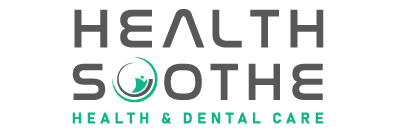Share this post
Recovering from a surgery, whether elective or critical, can be a long, difficult process. Depending on the invasiveness of the procedure, it can take weeks or even months to recover. This makes after surgery care an important part of your physical wellbeing. Whether you’re expecting to go into surgery soon, helping a loved one recover, or in the recovery process yourself, here are 5 tips to help ease recovery after surgery.
1: Pay Attention to Patient Discharge Instructions
After undergoing surgery, you will get discharge instructions, which you will review with your surgical team before being allowed to go home. These discharge instructions involve information on wound care, physical therapy recommendations, and general exercise and diet recommendations, and they will be geared towards recovering from your particular surgical procedure and any other health conditions. The first step to easing recovery after surgery is to pay attention to these discharge instructions. Make sure you re-read them regularly while recovering and call a member of your surgical team if you have any questions. Your discharge instructions are the first step to recovering from a surgical procedure.
2: Give Your Body Rest
Any surgery, especially a major surgery, will put significant strain on your body and immune system. This means that it’s important to give your body the rest it needs. Sleep if you feel tired, even if it isn’t your usual sleep schedule, and make sure not to push yourself too hard in the initial recovery period. A gradual, gentle approach will allow you to listen to what your body is telling you about your condition.
3: Take Pain Meds as Advised
Your doctor will likely have given you a laundry list of medications, both prescription and over-the-counter, before you went into surgery. While the recovery process will likely involve a certain amount of pain, especially if the surgery involves cutting into an area with a large number of active muscles, taking your pain medication as advised can go a long way towards easing both your pain and the recovery process. Taking pain medication as advised will also speed up your recovery time and allow you to return to full activity that much more quickly.
4: Attend All Follow-Up Appointments
Follow-up appointments are an important tool for your surgical team to help you recover fully from your surgery, especially early in the recovery process. Your first follow-up appointment will likely be a day or two after the surgery, and you may feel sick, tired, or otherwise unwilling to go. Make sure you have a friend or family member on hand who will be willing to drive you to your initial appointment to ensure that you’ll be able to attend. Being honest about your pain and any other symptoms is important as well, since your doctor will be able to better treat your pain if they know what’s going on with your body and unusual symptoms can be a sign of complications. Make sure to ask any questions that may be on your mind as well.
5: Take Care of Your Diet and Exercise
When you’re in pain due to a recent surgery, it can be easy to let diet and exercise fall to the wayside, but these are important components to maintaining your body as it recovers. Make sure to keep a water bottle nearby to encourage yourself to stay hydrated and drink whenever you’re thirsty. Nutritious meals high in vitamin C, B12, and protein are a must - beans, chicken, eggs, yogurt, citrus, and broccoli are foods that can be easy to cook while recovering and will give you the nutrients you need. Exercise is important as well, since it can prevent post-surgery health problems such as pneumonia and help you stay in shape. Your patient discharge instructions will likely have suggestions for gentle, low-impact exercises that will help you recover.

Isreal olabanji a dental assistant and public health professionals and has years of experience in assisting the dentist with all sorts of dental issues.
We regularly post timely and trustworthy medical information and news on Fitness, Dental care, Recipes, Child health, obstetrics, and more.

